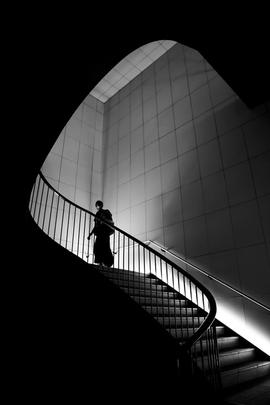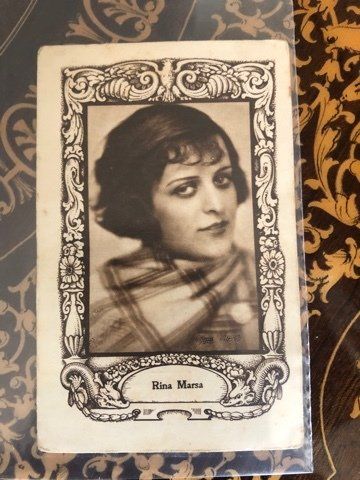ABOUT RINA MARSA
Rina Marsa was born in the Russian Empire in 1904, and came from Georgian-Abkhazian ancestry.
When she was 14 years old, her family fled from Tbilisi following the Russian revolution, and emigrated to Turkey.
She began working in a suburb of Istanbul as a pianist, and in the 1920’s she moved to France to work as a model. She found work as a model both in fashion and in advertisement photography. During her time there she met American film director Monta Bell in Paris.
(Monta Bell, who had worked with and been mentored by Charlie Chaplin, rose to fame after directing Greta Garbo’s first American film, Torrent. In 1928 he became the head of production for Astoria Studios, where he directed a number of comedies and dramas before starting to produce films.) Bell offered to take her to Hollywood, but she refused.
Although she turned down his offer, Bell introduced her to German producer and director Erich Pommer. Pommer is seen as one of the most prominent people in the European film industry - as well as specifically the German film industry - in the 1920’s and 1930’s. Pommer was known as creating many of the best known films from the German Weimar Republic, including The Cabinet of Dr. Caligari, Variety, Tartuffe, Metropolis and The Blue Angel.
In 1928, Rina Marsa was hired by the UFA (Universum Film AG) and began a string of supporting roles alongside well-known German stars. The following year she rose to fame when Deutsche Universal, under the direction of Joe Pasternak and Wilhelm Dieterle, hired Marsa in leading film roles in Ludwig II, King of Bavaria, where she played the Duchess Sophie, and as Baroness Prankha in Das Schweigen im Walde (The Silence in the Forest).
After making a name for herself in the German film industry, Marsa became known by some prominent figures in the Austrian film industry as well. She traveled to Vienna in 1929 to take on roles in some silent films, specifically two productions of Listo-Film alongside well-known Austrian actors including Julius Szöreghi, Wolf Albach-Retty, Mary Kid and Mizzi Griebl.
Rina Marsa’s film success in the late 1920’s came just in time for the film industry to begin the transition to talking films. Marsa, like many other silent film stars, was not able to make the transition from silent films to talkies. Between 1931 and 1932, she made only three films and then largely disappeared from the public eye. Her final role was as Fräulein de la Roche in the 1933 film adaptation of Stefan Zweig’s novel, Burning Secret. Many believe Marsa was blacklisted from performing during the Third Reich by the Nazis.
Rina Marsa’s life remains largely a mystery. Her marriage to Spanish shipping magnate Emilio Genís Varela is all that is known about her romantic involvement. Varela got involved with her career, attempting to finance a 1935 vampire movie starring Marsa and Ivan Mosjoukine, who were both in dire straits in the midst of the decline of their careers. The film was quite edgy for the time, featuring violence and prominent erotic overtones for the time. However, the film never got off the ground.
She is believed to have died in anonymity in Barcelona around September 1936, at the start of the Spanish Civil War, but her exact date of death, along with the circumstances, are unknown.
Filmography:
• 1928: Die Yacht der sieben Sünden
• 1928: Die blaue Maus
• 1929: Auf Leben und Tod
• 1929: Jugendsünden
• 1929: Geheimpolizisten
• 1929: Das Schweigen im Walde
• 1929: Ludwig der Zweite, König von Bayern
• 1930: Liebe und Champagner
• 1930: Der Onkel aus Sumatra
• 1930: General Babka
• 1931: Arm wie eine Kirchenmaus
• 1931: Nie wieder Liebe (auch franz. Vers.: Calais-Douvres)
• 1933: Brennendes Geheimnis


